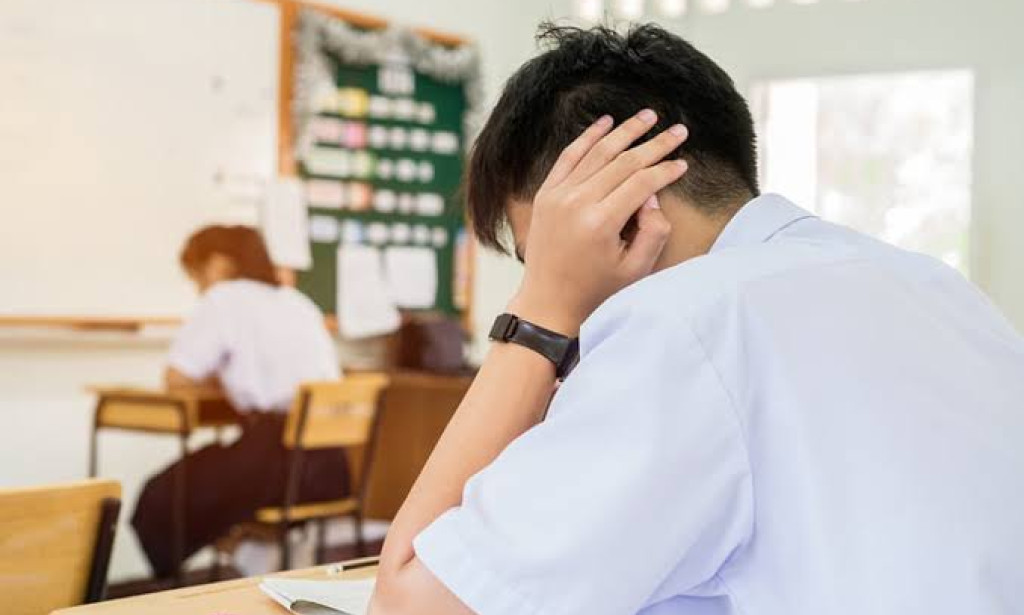WHAT IS DEPRESSION??
Depression is a serious mood disorder that affects how a person thinks, feels and behaves. It can lead to a wide range of emotional and physical problems, including persistent feelings of hopelessness, irritability, loss of interest in activities once enjoyed, changes in appetite or sleep patterns, and thoughts of self-harm or suicide. In youths, depression can manifest differently compared to adults and is often harder to detect due to the complexity of adolescence.
CAUSES OF DEPRESSION IN YOUTHS.
1. Genetic/ family history.
If a parent or close relative has experienced depression, the chances of the youth developing the condition are higher.
2.Stress and trauma.
Stressful life events such as loss of a loved one, parental separation,abuse,neglet,bullying or moving to a new place can also act as trigger for depression.
3. Social media and cyber bullying.
Constant comparison to peers, exposure to unrealistic standards of beauty and success, and the prevalence of cyberbullying have been linked to increased feelings of isolation and inadequacy, contributing to depression in some adolescents.
4. Academic pressure.
The pressure to perform well academically is another significant stressor for many youths. The competitive nature of modern education systems, coupled with the constant pursuit of perfect grades, can lead to feelings of failure and burnout.
5. Hormonal Changes
Adolescence is a time of significant hormonal changes that can affect mood regulation. These biological shifts can contribute to emotional instability, making teens more vulnerable to developing depression.
6. Social Isolation
Adolescents often undergo periods of social withdrawal as they try to figure out their identity, but prolonged isolation can be a risk factor for depression. When youths feel disconnected from their peers or family members, it can exacerbate feelings of loneliness and despair.
RECOGNIZING DEPRESSION IN YOUTHS
- Irritability or anger: Youths with depression may appear more irritable or have sudden mood swings.
- Withdrawal from friends and activities: An adolescent who once enjoyed socializing or hobbies may start avoiding these activities.
- Changes in academic performance: A decline in school performance can be a sign of emotional distress.
- Physical complaints: Unexplained headaches, stomachaches, or fatigue are often associated with depression in younger individuals.
- Self-harm or talk of suicide: This is a critical warning sign that demands immediate attention. If a youth is expressing thoughts of self-harm or suicide, it’s essential to intervene and seek professional help.
- TREATMENT AND SUPPORT FOR DEPRESSED YOUTHS
- Psychotherapy
Forms of talk therapy have been shown to be effective in treating depression. These therapies help individuals recognize and challenge negative thought patterns, build coping strategies, and improve emotional regulation. - Medication
Medication should always be monitored by a healthcare professional, as side effects and the potential for misuse need to be carefully managed. - Family Support and Education
Family members play a vital role in a young person's recovery. Educating parents and caregivers about depression, fostering open communication, and providing a supportive environment can make a significant difference in the recovery process. - Peer Support
Peers can provide a crucial support system for youths dealing with depression. Programs like peer mentoring or peer support groups can help reduce the stigma surrounding mental health and provide a sense of belonging and understanding. - School-Based Interventions
Schools have a unique opportunity to support youth mental health. Implementing mental health education programs, providing access to counselors, and promoting a school culture of inclusivity and kindness can help reduce the impact of depression. - Lifestyle Changes
Encouraging physical activity, balanced nutrition, and adequate sleep is essential for managing depression. Regular exercise has been shown to have a positive effect on mood by boosting endorphin levels, while poor diet and sleep patterns can exacerbate mental health issues.


You must be logged in to post a comment.